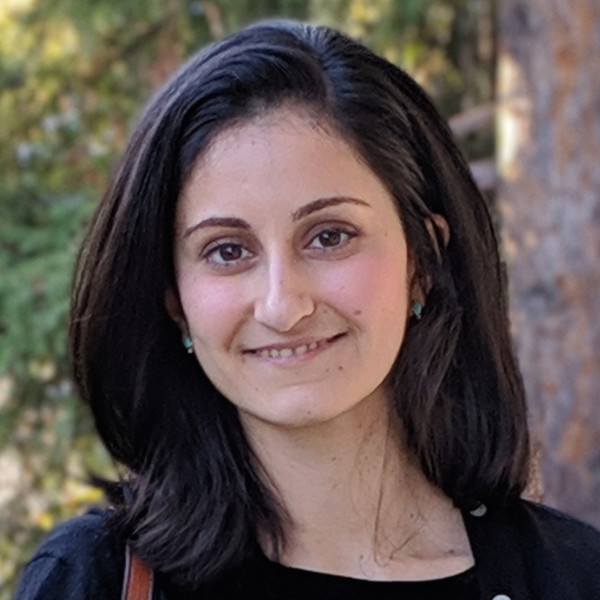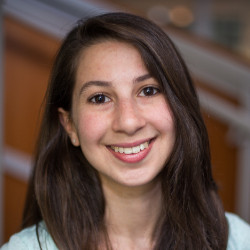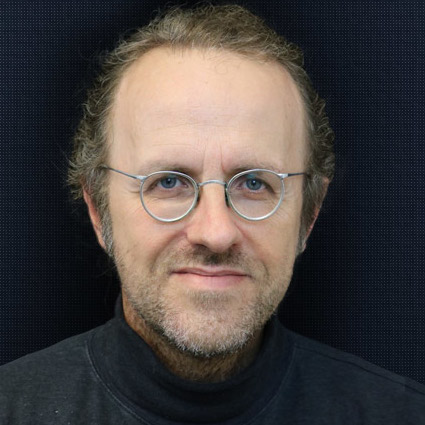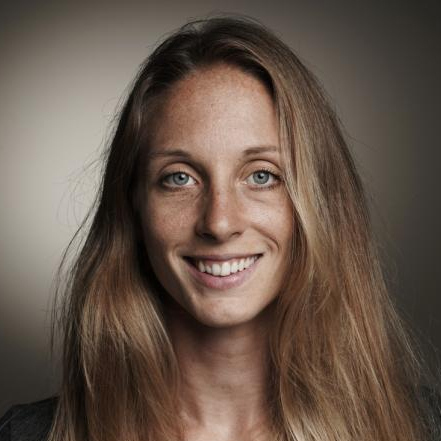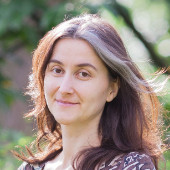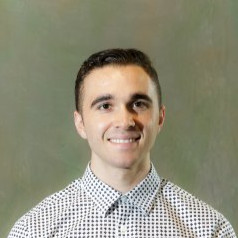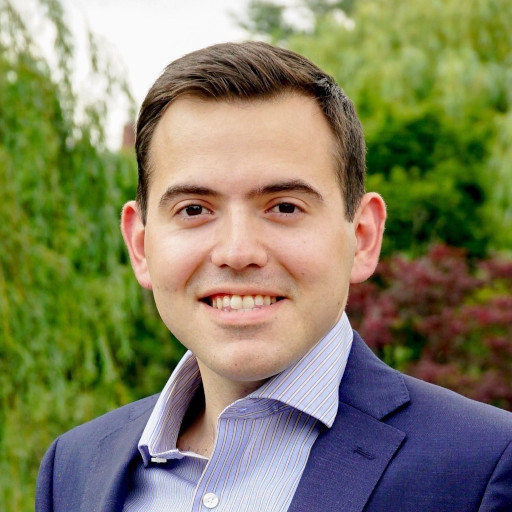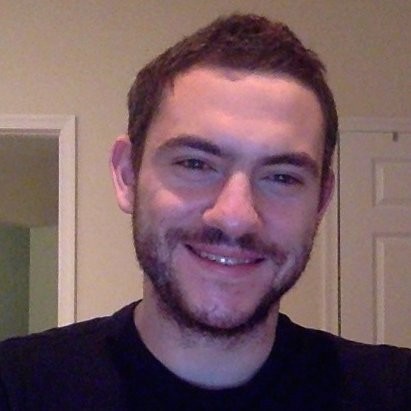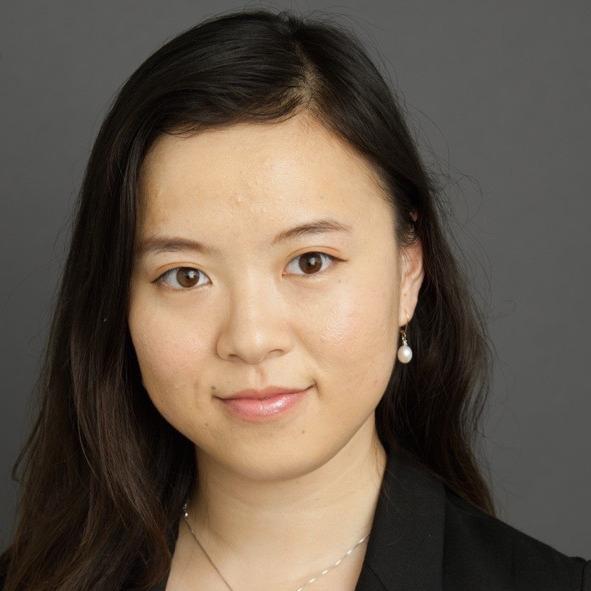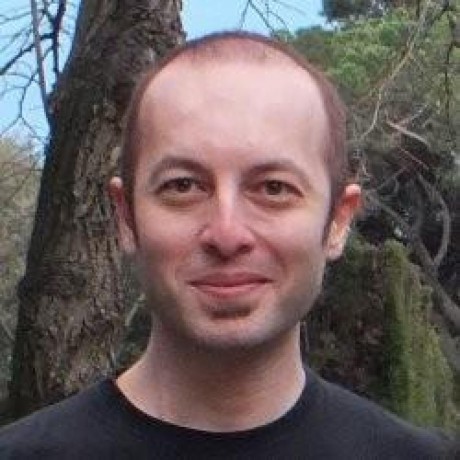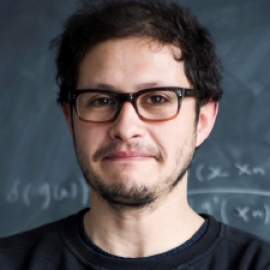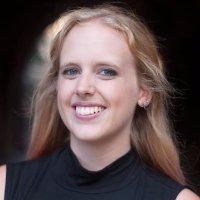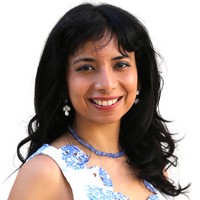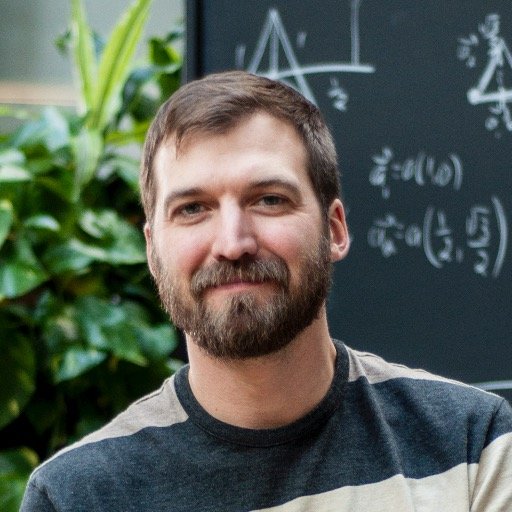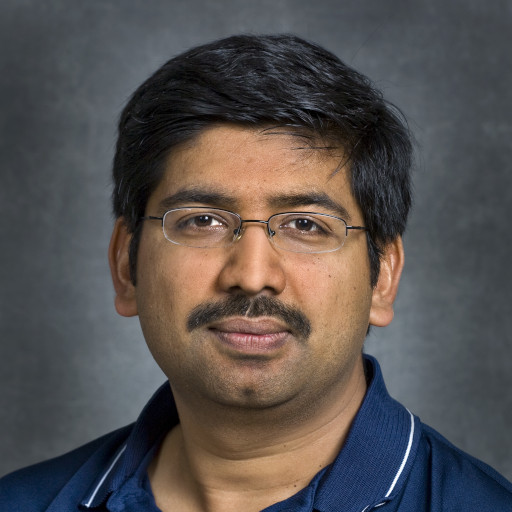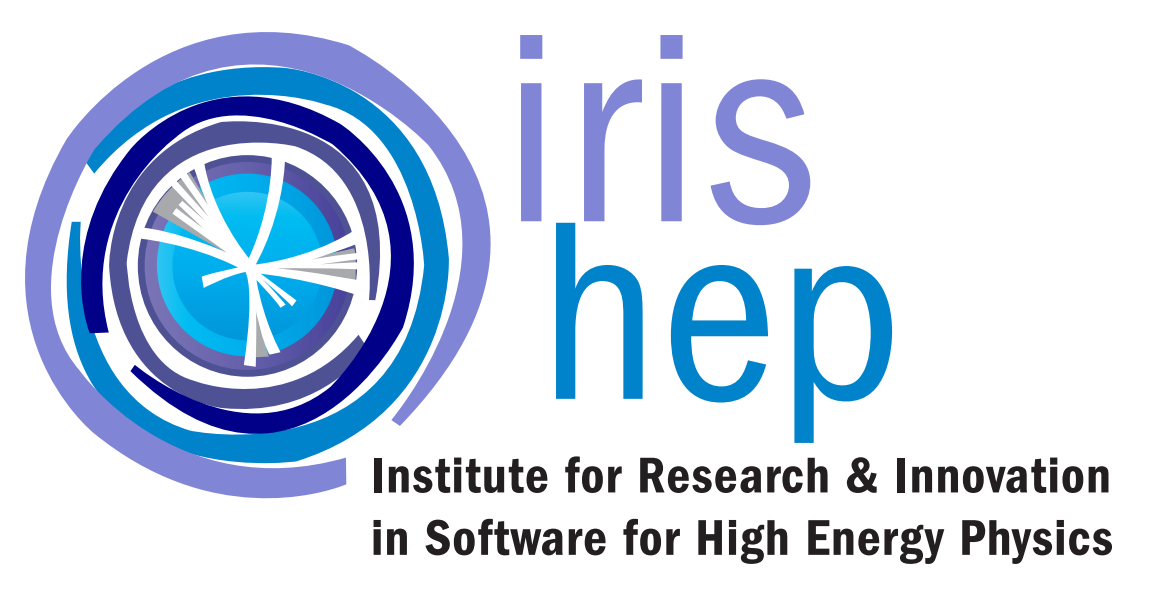We have accepted 91 short papers for poster presentation at the workshop. Six of these are selected for contributed talks.
Due to the large volume of good-quality papers submitted to this workshop, we introduced a "digital acceptance" category to designate accepted papers without in person (poster or talk) representation, inspired by the ML4H workshop. These have review scores above the rejection threshold, but are beyond our venue capacity limitations when all papers are sorted by review score. We have accepted 70 short papers as digital acceptances.
Poster session (Morning)
| 1 |
3D Conditional Generative Adversarial Networks to enable large-scale seismic image enhancement [pdf]
Praneet Dutta, Bruce Power, Adam Halpert, Carlos Ezequiel, Aravind Subramanian, Massimo Mascaro, Kenton Prindle, Chanchal Chaterjee, Vishal Vaddina, Sindhu Hari, Andrew Leach, Raj Domala and Laura Bandura |
| 2 |
DeepXDE: A deep learning library for solving differential equations [pdf]
Lu Lu, Xuhui Meng, Zhiping Mao and George Karniadakis |
| 3 |
Metric Methods with Open Collider Data [pdf]
Eric Metodiev, Patrick Komiske, Radha Mastandrea, Preskha Naik and Jesse Thaler |
| 4 |
Deep Learning Model for Finding New Superconductors [pdf]
Tomohiko Konno, Hodaka Kurokawa, Fuyuki Nabeshima, Yuki Sakishita, Ryo Ogawa, Iwao Hosako and Atsutaka Meda |
| 5 |
deepCR: Cosmic Ray Rejection with Deep Learning [pdf]
Keming Zhang and Joshua S. Bloom |
| 6 |
LSTM-Designed Quantum Experiments [pdf]
Thomas Adler, Manuel Erhard, Mario Krenn, Johannes Brandstetter, Johannes Kofler and Sepp Hochreiter |
| 7 |
Quantum Natural Gradient [pdf]
James Stokes, Josh Izaac, Nathan Killoran and Giuseppe Carleo |
| 8 |
GMLS-Nets: Scientific Machine Learning Methods for Unstructured Data [pdf]
Nathaniel Trask, Ravi Patel, Ben Gross and Paul Atzberger |
| 9 |
Likelihood-free inference with an improved cross-entropy estimator [pdf]
Markus Stoye, Johann Brehmer, Gilles Louppe, Juan Pavez and Kyle Cranmer |
| 10 |
Efficient training of energy-based models via spin-glass control [pdf]
Alejandro Pozas-Kerstjens, Gorka Muñoz-Gil, Miguel Angel Garcia-March, Antonio Acin, Maciej Lewenstein and Przemyslaw R. Grzybowski |
| 11 |
Deep convolutional neural networks for multi-scale time-series classification and application to disruption prediction in fusion devices [pdf]
R.M. Churchill and Diii-D Team |
| 12 |
Multi-fidelity Learning with Heterogeneous Domains [pdf]
Soumalya Sarkar, Michael Joly and Paris Perdikaris |
| 13 |
A million times speed up in parameters retrieval with deep learning [pdf]
Muhammad Firmansyah Kasim, Jacob Topp-Mugglestone, Peter Hatfield, Dustin Froula, Gianluca Gregori, Matt Jarvis, Eleonora Viezzer and Sam Vinko |
| 14 |
All SMILES Variational Autoencoder [pdf]
Zaccary Alperstein, Artem Cherkasov and Jason Rolfe |
| 15 |
Learning Symbolic Physics with Graph Networks [pdf]
Miles Cranmer, Rui Xu, Peter Battaglia and Shirley Ho |
| 16 |
Mining gold: Improving simulation-based inference with latent information [pdf]
Johann Brehmer, Kyle Cranmer, Siddharth Mishra-Sharma, Felix Kling and Gilles Louppe |
| 17 |
Equivariant Hamiltonian Flows [pdf]
Danilo Jimenez Rezende, Irina Higgins, Sébastien Racaniere and Peter Toth |
| 18 |
Producing High-fidelity Flux Fields From N-body Simulations Using Physically Motivated Neural Networks [pdf]
Peter Harrington, Mustafa Mustafa, Max Dornfest, Wahid Bhimji and Zarija Lukic |
| 19 |
ChemBO: Bayesian Optimization of Small Organic Molecules with Synthesizable Recommendations [pdf]
Ksenia Korovina, Sailun Xu, Kirthevasan Kandasamy, Willie Neiswanger, Barnabas Poczos, Jeff Schneider and Eric P. Xing |
| 20 |
Sim-to-Real Domain Adaptation For High Energy Physics [pdf]
Marouen Baalouch, Maxime Defurne, Jean-Philippe Poli and Noëlie Cherrier |
| 21 |
Augmenting Genetic Algorithms with Neural Networks [pdf]
Akshatkumar Nigam, Pascal Friederich, Mario Krenn and Alán Aspuru-Guzik |
| 22 |
Learning to Control PDEs with Differentiable Physics [pdf]
Nils Thuerey, Philipp Holl and Vladlen Koltun |
| 23 |
Molecule-Augmented Attention Transformer [pdf]
Lukasz Maziarka, Tomasz Danel, Slawomir Mucha, Krzysztof Rataj, Jacek Tabor and Stanislaw Jastrzebski |
| 24 |
Physics-guided Reinforcement Learning for 3D Molecular Structures [pdf]
Sookyung Kim, Youngwoo Cho, Peggy. Pk Li, Mike. P Surh and T. Yong-Jin Han |
| 25 |
The Learnability Scaling of Quantum States: Restricted Boltzmann Machines [pdf]
Anna Golubeva, Roger Melko, Dan Sehayek, Giacomo Torlai, Bohdan Kulchytskyy and Michael Albergo |
| 26 |
Sign Structure of Many-Body Wavefunctions and Machine Learning [pdf]
Tom Westerhout, Nikita Astrakhantsev, Konstantin S. Tikhonov, Mikhail I. Katsnelson and Andrey A. Bagrov |
| 27 |
Offline Contextual Bayesian Optimization for Nuclear Fusion [pdf]
Youngseog Chung, Ian Char, Willie Neiswanger, Kirthevasan Kandasamy, Andrew Nelson, Mark Boyer, Egemen Kolemen and Jeff Schneider |
| 28 |
Physics-informed Autoencoders for Lyapunov-stable Fluid Flow Prediction [pdf]
N. Benjamin Erichson, Michael Muehlebach and Michael Mahoney |
| 29 |
A neural network oracle for quantum nonlocality problems in networks [pdf]
Tamás Kriváchy, Yu Cai, Daniel Cavalcanti, Arash Tavakoli, Nicolas Gisin and Nicolas Brunner |
| 30 |
Hamiltonian Graph Networks with ODE Integrators [pdf]
Alvaro Sanchez-Gonzalez, Victor Bapst, Kyle Cranmer and Peter Battaglia |
| 31 |
Hashing and metric learning for charged particle tracking [pdf]
Sabrina Amrouche, Tobias Golling, Moritz Kiehn and Andreas Salzburger |
| 32 |
Scalable Extreme Deconvolution [pdf]
James A. Ritchie and Iain Murray |
| 33 |
Inference of a Universal Ornstein-Zernike Closure Relationship with Machine Learning [pdf]
Rhys Goodall and Alpha Lee |
| 34 |
Learning quantum states from noisy data [pdf]
Brian Timar, Giacomo Torlai, Evert van Nieuwenburg, Manuel Endres and Roger Melko |
| 35 |
Reinforcement-Learning-Based Variational Quantum Circuits Optimization for Combinatorial Problems [pdf]
Sami Khairy, Ruslan Shaydulin, Lukasz Cincio, Yuri Alexeev and Prasanna Balaprakash |
| 36 |
Trigger Rate Anomaly Detection with Conditional Variational Autoencoders at the CMS Experiment [pdf]
Adrian Pol, Victor Berger, Gianluca Cerminara, Cecile Germain and Maurizio Pierini |
| 37 |
Exploring Generative Physics Models with Scientific Priors in Inertial Confinement Fusion [pdf]
Rushil Anirudh, Jayaraman J. Thiagarajan, Shusen Liu, Peer-Timo Bremer and Brian K. Spears |
| 38 |
PaccMann RL : Designing anticancer drugs from transcriptomic data via reinforcement learning [pdf]
Jannis Born, Matteo Manica, Ali Oskooei, Joris Cadow and María Rodríguez Martínez |
| 39 |
The Chemistry of Smell: Learning Generalizable Perceptual Representations of Small Molecules [pdf]
Benjamin Sanchez-Lengeling, Jennifer Wei, Brian K Lee, Richard C Gerkin, Alán Aspuru-Guzik and Alexander B Wiltschko |
| 40 |
Data Driven Simulation of Cherenkov Detectors using Generative Adversarial Network [pdf]
Denis Derkach, Artem Maevskiy, Nikita Kazeev, Andrey Usyuzhanin, Maksim Artemev and Lucio Anderlini |
| 41 |
Applying Bayesian Optimization to Understand Tradeoffs for Antireflective Optical Designs [pdf]
Michael Mccourt, Bolong Cheng, Sajad Haghanifar and Paul Leu |
| 42 |
HIGAN: Cosmic Neutral Hydrogen with GANs [pdf]
Atakan Okan, Juan Zamudio-Fernandez, Francisco Villaescusa, Seda Bilaloglu, Siyu He, Laurence Levasseur, Asena Derin Cengiz and Shirley Ho |
| 43 |
Value-Added Chemical Discovery Using Reinforcement Learning [pdf]
Peihong Jiang, Hieu Doan, Sandeep Madireddy, Rajeev Surendran Assary and Prasanna Balaprakash |
| 44 |
Predicting ground state configuration of energy landscape using graph neural network [pdf]
Seong Ho Pahng and Michael Brenner |
| 45 |
Manifold coordinates with physical meaning [pdf]
Samson Koelle, Hanyu Zhang, Marina Meila and Yu-Chia Chen |
Poster session (Afternoon)
| 46 |
Model Bridging: To Interpretable Simulation Model From Neural Network [pdf]
Keiichi Kisamori, Keisuke Yamazaki, Yuto Komori and Hiroshi Tokieda |
| 47 |
Predicting hydrogen storage in nanoporous materials using meta-learning [pdf]
Yangzesheng Sun, Robert F. DeJaco and J. Ilja Siepmann |
| 48 |
Unsupervised Star Galaxy Classification with Cascade Variational Auto-Encoder [pdf]
Hao Sun, Jiadong Guo, Edward J. Kim and Robert J. Brunner |
| 49 |
A Taylor Based Sampling Scheme for Machine Learning in Computational Physics [pdf]
Paul Novello, Gael Poette, David Lugato and Pietro Congedo |
| 50 |
Guided Selection of Accurate Belief Propagation Fixed Points [pdf]
Christian Knoll and Franz Pernkopf |
| 51 |
Data-driven Chemical Reaction Classification [pdf]
Philippe Schwaller, Alain Claude Vaucher, Vishnu H Nair and Teodoro Laino |
| 52 |
Bayesian Inversion Of Generative Models For Geologic Storage Of Carbon Dioxide [pdf]
Gavin Graham and Yan Chen |
| 53 |
Jet classification techniques in CMS [pdf]
Mauro Verzetti |
| 54 |
Fast Wiener filtering of CMB maps with Neural Networks [pdf]
Moritz Munchmeyer and Kendrick Smith |
| 55 |
Designing Deep Inverse Models for History Matching in Reservoir Simulations [pdf]
Vivek Sivaraman Narayanaswamy, Jayaraman J Thiagarajan, Rushil Anirudh, Fahim Forouzanfar, Peer-Timo Bremer and Xiao-Hui Wu |
| 56 |
Single-Frame Super-Resolution of Solar Magnetograms: Investigating Physics-Based Metrics & Losses [pdf]
Anna Jungbluth, Xavier Gitiaux, Shane Maloney, Carl Shneider, Paul Wright, Atılım Güneş Baydin, Michel Deudon, Alfredo Kalaitzis, Yarin Gal and Andres Munoz-Jaramillo |
| 57 |
Training Deep Neural Networks by optimizing over nonlocal paths in hyperparameter space [pdf]
Vlad Pushkarov, Jonathan Efroni, Mykola Maksymenko and Maciej Koch-Janusz |
| 58 |
Using U-Nets to create high-fidelity virtual observations of the solar corona [pdf]
Valentina Salvatelli, Souvik Bose, Brad Neuberg, Luiz F. G. dos Santos, Mark Cheung, Miho Janvier, Atılım Güneş Baydin, Yarin Gal and Meng Jin |
| 59 |
From Dark Matter to Galaxies with Convolutional Neural Networks [pdf]
Jacky H. T. Yip, Xinyue Zhang, Yanfang Wang, Wei Zhang, Yueqiu Sun, Gabriella Contardo, Francisco Villaescusa-Navarro, Siyu He, Shy Genel and Shirley Ho |
| 60 |
Automatic Determination of Chemical Reaction Mechanisms with Neural Networks [pdf]
Daniel Levine |
| 61 |
Learning Dynamical Systems from Partial Observations [pdf]
Ibrahim Ayed, Emmanuel de Bézenac, Arthur Pajot, Patrick Gallinari and Julien Brajard |
| 62 |
Data-driven discovery of free-form governing differential equations [pdf]
Steven Atkinson, Waad Subber, Liping Wang, Genghis Khan, Philippe Hawi and Roger Ghanem |
| 63 |
Deep neural network solution of the electronic Schrödinger equation [pdf]
Jan Herrmann, Zeno Schätzle and Frank Noe |
| 64 |
Accelerated Machine Learning as a Service for Particle Physics Computing [pdf]
Nhan Tran, Javier Duarte, Philip Harris, Scott Hauck, Burt Holzman, Shih-Chieh Hsu, Sergo Jindariani, Suffian Khan, Benjamin Kreis, Mia Liu, Ted Way, Vladimir Loncar, Jennifer Ngadiuba, Kevin Pedro, Maurizio Pierini, Dylan Rankin, Matthew Trahms, Aristeidis Tsaris, Colin Versteeg, Dustin Werran, Zhenbin Wu and Thomas Klijnsma |
| 65 |
Predicting Weather Uncertainty with Deep Convnets [pdf]
Peter Grönquist, Tal Ben-Nun, Nikoli Dryden, Peter Dueben, Luca Lavarini, Shigang Li and Torsten Hoefler |
| 66 |
Using Single Protein/Ligand Binding Models to Predict Active Ligands for Previously Unseen Proteins [pdf]
Vikram Sundar and Lucy Colwell |
| 67 |
Turbulence forecasting via Neural ODE [pdf]
Gavin Portwood, Peetak Mitra, Mateus Dias Ribeiro, Tan Minh Nguyen, Balasubramanya Nadiga, Juan Saenz, Micheal Chertkov, Animesh Garg, Anima Anandkumar, Andreas Dengel, Richard Baraniuk and David Schmidt |
| 68 |
Application of distance-weighted graph networks to real-life particle detector output [pdf]
Gianluca Cerminara, Abhijay Gupta, Yutaro Iiyama, Jan Kieseler, Maurizio Pierini, Marcel Rieger, Gerrit Van Onsem and Kinga Wozniak |
| 69 |
Predicting Features of Quantum Systems using Classical Shadows [pdf]
Hsin-Yuan Huang and Richard Kueng |
| 70 |
Hybrid Physical-Deep Learning Model for Astronomical Inverse Problems [pdf]
Francois Lanusse, Peter Melchior and Fred Moolekamp |
| 71 |
Interaction networks for the identification of Higgs boson decays to bottom quark-antiquark pairs [pdf]
Javier Duarte, Olmo Cerri, Eric Moreno, Thong Nguyen, Harvey Newman, Jean-Roch Vlimant, Avikar Periwal, Aidana Serikova, Maria Spiropulu and Maurizio Pierini |
| 72 |
Reservoir Computing for Prediction of Beam Evolution in Particle Accelerators [pdf]
Heidi Komkov, Levon Dovlatyan, Artur Perevalov and Daniel Lathrop |
| 73 |
Adaptive Quantum State Tomography with Neural Networks [pdf]
Yihui Quek, Stanislav Fort and Hui Khoon Ng |
| 74 |
Low-latency machine learning inference on FPGAs [pdf]
Javier Duarte, Christian Herwig, Burt Holzman, Sergo Jindariani, Benjamin Kreis, Mia Liu, Ryan Rivera, Nhan Tran, Vladimir Loncar, Jennifer Ngadiuba, Maurizio Pierini, Sioni Summers, Scott Hauck, Shih-Chieh Hsu, Zhenbin Wu, Edward Kreinar, Song Han, Phil Harris and Dylan Rankin |
| 75 |
Numerical Weather Model Super-Resolution [pdf]
Alok Singh, Brian White and Adrian Albert |
| 76 |
Correlation of Auroral Dynamics and GNSS Scintillation with an Autoencoder [pdf]
Kara Lamb, Garima Malhotra, Athanasios Vlontzos, Edward Wagstaff, Atılım Güneş Baydin, Anahita Bhiwandiwalla, Yarin Gal, Alfredo Kalaitzis, Anthony Reina and Asti Bhatt |
| 77 |
Convolutional neural networks for energy and vertex reconstruction in DUNE [pdf]
Ilsoo Seong, Lars Hertel, Julian Collado, Pierre Baldi, Jianming Bian, Lingge Li and Nitish Nayak |
| 78 |
Calculating Renyi Entropies with Neural Autoregressive Quantum States [pdf]
Zhaoyou Wang and Emily Davis |
| 79 |
Equivariant Flows: sampling configurations for multi-body systems with symmetric energiess [pdf]
Jonas Köhler, Leon Klein and Frank Noe |
| 80 |
Refined Redshift Regression in Cosmology with Graph Convolution Networks [pdf]
Robert Beck, Yannik Glaser, Peter Sadowski and Istvan Szapudi |
| 81 |
Towards physics-informed deep learning for turbulent flow prediction [pdf]
Rui Wang, Karthik Kashinath, Mustafa Mustafa and Rose Yu |
| 82 |
Learning Evolution of Coupled Dynamical Systems with Integrated Data-driven and Model-based Approach [pdf]
Priyabrata Saha, Arslan Ali, Burhan Mudassar, Yun Long and Saibal Mukhopadhyay |
| 83 |
Graph Neural Networks for Particle Reconstruction in High Energy Physics detectors [pdf]
Xiangyang Ju, Steven Farrell, Paolo Calafiura, Lindsey Gray, Jean-Roch Vlimant, Prabhat, Daniel Murnane, Thomas Klijnsma, Kevin Pedro, Giuseppe Cerati, Jim Kowalkowski, Gabriel Perdue, Panagiotis Spentzouris, Nhan Tran, Alexander Zlokapa, Joosep Pata, Maria Spiropulu, Sitong An, Adam Aurisano, Jeremy Hewes, Aristeidis Tsaris, Kazuhiro Terao and Tracy Usher |
| 84 |
Machine learning climate variability [pdf]
Ji Hwan Park, Shinjae Yoo and Balasubramanya Nadiga |
| 85 |
Online tuning and light source control using physics-informed Gaussian process [pdf]
Adi Hanuka, Joe Duris, Xiaobiao Huang, Jane Shtalenkova and Dylan Kennedy |
| 86 |
JAX, M.D.: End-to-End Differentiable, Hardware Accelerated, Molecular Dynamics in Pure Python [pdf]
Samuel Schoenholz and Ekin Cubuk |
| 87 |
Interpretability Study on Deep Learning for Jet Physics at the Large Hadron Collider [pdf]
Taoli Cheng |
| 88 |
Heteroscedastic Bayesian Optimisation in Scientific Discovery [pdf]
Ryan-Rhys Griffiths, Miguel Garcia-Ortegon, Alexander Aldrick and Alpha Lee |
| 89 |
AI Safety for High Energy Physics [pdf]
Chase Shimmin and Benjamin Nachman |
| 90 |
Machine Learning Models for Optimization and Control of X-ray Free Electron Lasers [pdf]
Auralee Edelen, Nicole Neveu, Daniel Ratner, Claudio Emma and Christopher Mayes |
| 91 |
Deep learning for Aerosol Forecasting [pdf]
Caleb Hoyne, Surya Karthik Mukkavilli and David Meger |
Digital acceptances
| 92 |
Hierarchical variational models for statistical physics [pdf]
Jaan Altosaar, Rajesh Ranganath and Kyle Cranmer |
| 93 |
A Two-Step Graph Convolutional Decoder for Molecule Generation [pdf]
Xavier Bresson and Thomas Laurent |
| 94 |
Microlensing Light-curve Anomaly Detection [pdf]
Antonio Herrera Martin and Michael Albrow |
| 95 |
Multi-Scale Graph Partitioning for Unravelling Dynamics of Major Peanut Allergen Ara h 1 [pdf]
Heng Zhang |
| 96 |
Single trajectory characterization via machine learning [pdf]
Gorka Muñoz-Gil, Miguel Ángel García-March, Carlo Manzo, José David Martín-Guerrero and Maciej Lewenstein |
| 97 |
Emulation of cosmological mass maps with conditional generative adversarial networks [pdf]
Nathanael Perraudin, Sandro Marcon, Aurelien Lucchi and Tomasz Kacprzak |
| 98 |
Intelligence Learning: Efficient Parameter Sampling for Emulator Construction [pdf]
Drimik Roy Chowdhury and Muhammad Kasim |
| 99 |
Using recurrent neural networks for nonlinear component computation in advection-dominated reduced-order models [pdf]
Romit Maulik, Vishwas Rao, Sandeep Madireddy, Bethany Lusch and Prasanna Balaprakash |
| 100 |
Learning to Reconstruct Crack Profiles for Eddy Current Nondestructive Testing [pdf]
Shaohua Li, Ayesha Anees, Yu Zhong, Zaifeng Yang, Yong Liu, Rick Siow Mong Goh and En-Xiao Liu |
| 101 |
Embedded Constrained Feature Construction for High-Energy Physics Data Classification [pdf]
Noëlie Cherrier, Maxime Defurne, Jean-Philippe Poli and Franck Sabatié |
| 102 |
Applications of Deep Learning Methodology in Real-Time Completion Event Recognition [pdf]
Yuchang Shen, Dingzhou Cao and Kate Ruddy |
| 103 |
Model Parameter Optimization: ML-guided trans-resolution tuning of physical models [pdf]
Sam Partee, Michael Ringenburg, Benjamin Robbins and Andrew Shao |
| 104 |
Understanding and Improving Transformer From a Multi-Particle Dynamic System Point of View [pdf]
Yiping Lu, Zhuohan Li, Di He, Zhiqing Sun, Bin Dong, Tao Qin, Liwei Wang and Tie-Yan Liu |
| 105 |
Inverting Solar Spectropolarimetric Observations with Deep Learning [pdf]
Curt Dodds, Ian Cunningham, Lucas Tarr, Sarah Jaeggli, Tom Schad, Peter Sadowski and Xudong Sun |
| 106 |
Learning Coarse-Grained Particle Latent Space with Auto-Encoders [pdf]
Wujie Wang and Rafael Gomez-Bombarelli |
| 107 |
Machine learning for image-based wavefront sensing [pdf]
Pierre-Olivier Vanberg, Gilles Orban de Xivry, Olivier Absil and Gilles Louppe |
| 108 |
Training atomic neural networks using fragment-based data generated in virtual reality [pdf]
Silvia Amabilino, Lars Bratholm, Simon Bennie and David Glowacki |
| 109 |
Learning Generalized Quasi-Geostrophic Models Using Deep Neural Numerical Models [pdf]
Redouane Lguensat, Julien Le Sommer, Sammy Metref, Emmanuel Cosme and Ronan Fablet |
| 110 |
Learning Generalized Quasi-Geostrophic Models Using Deep Neural Numerical ModelsOn the loss of learning capability inside an arrangement of neural networks [pdf]
Ivan Arraut and Diana Diaz |
| 111 |
Unsupervised Learning of Deep Features Through Best-Fits for Observational Cosmology [pdf]
Christopher Murray, Sebastien Fabbro and Kwang Moo Yi |
| 112 |
Lund jet images from generative and cycle-consistent adversarial networks [pdf]
Frederic Dreyer and Stefano Carrazza |
| 113 |
Emulation of physical processes with Emukit [pdf]
Andrei Paleyes, Mark Pullin, Maren Mahsereci, Neil Lawrence and Javier González |
| 114 |
Sequential design of point-wise measurements based on a deep generative model [pdf]
Hyungil Moon, Dominic Lennon, Leon Camenzind, Liuqi Yu, Dominik Zumbühl, Andrew Briggs, Michael Osborne, Edward Laird and Natalia Ares |
| 115 |
Unsupervised learning for thermal anomaly detection on the lunar surface [pdf]
Ben Moseley, Valentin Bickel, Jerome Burelbach, Nicole Relatores, Daniel Angerhausen, Frank Soboczenski and Dennis Wingo |
| 116 |
Evaluation Metrics for Single-Step Retrosynthetic Models [pdf]
Philippe Schwaller, Vishnu H Nair, Riccardo Petraglia and Teodoro Laino |
| 117 |
Extracting more from boosted decision trees: A high energy physics case study [pdf]
Vidhi Lalchand |
| 118 |
Generative Models for Solving Nonlinear Partial Differential Equations [pdf]
Ameya Joshi, Viraj Shah, Sambuddha Ghosal, Balaji Pokuri, Soumik Sarkar, Baskar Gananpathysubramanian and Chinmay Hegde |
| 119 |
Neural Embedding for Physical Manipulations [pdf]
Lingzhi Zhang, Andong Cao, Rui Li and Jianbo Shi |
| 120 |
Adversarial generation of mesoscale surfaces from small scale chemical motifs [pdf]
Kyle Mills, Corneel Casert and Isaac Tamblyn |
| 121 |
Deep seq2seq architecture for DNA sequence decoding from noisy data [pdf]
Frederic Lechenault, Antoine Baker and Florent Krzakala |
| 122 |
Training machine learning algorithms on background-contaminated data [pdf]
Nikita Kazeev and Maxim Borisyak |
| 123 |
Deep Learning the Morphology of Dark Matter Substructure [pdf]
Michael Toomey, Stephon Alexander, Sergei Gleyzer, Evan McDonough and Emanuele Usai |
| 124 |
Modeling sequences with quantum states: predicting generalization quality of generative modelse [pdf]
Tai-Danae Bradley, Edwin Stoudenmire and John Terilla |
| 125 |
Searching for exotic long-lived particle states at the LHC using a deep neural network [pdf]
Robert Bainbridge, Oliver Buchmuller, Vilius Cepaitis, Matthias Komm and Alex Tapper |
| 126 |
Identifying chemically identical stars using adverserial disentanglement [pdf]
Damien de Mijolla, Melissa Ness and Serena Viti |
| 127 |
A Deep Approach for Reliable Subsurface Imaging in Software-Defined Ground Penetrating Radar [pdf]
Bisma Amjad, Tauseef Tauqeer, Fahad Shamshad, Rehan Hafiz and Mahboob Ur Rahman |
| 128 |
Auto-Calibration of Remote Sensing Solar Telescopes with Deep Learning [pdf]
Brad Neuberg, Souvik Bose, Valentina Salvatelli, Luiz F. G. dos Santos, Mark Cheung, Miho Janvier, Atılım Güneş Baydin, Yarin Gal and Meng Jin |
| 129 |
Hunting for Dark Matter Subhalos in Strong Gravitational Lensing with Neural Networks [pdf]
Joshua Yao-Yu Lin, Hang Yu, Warren Morningstar, Jian Peng and Gilbert Holder |
| 130 |
Modular Deep Learning Analysis of Galaxy-Scale Strong Lensing Images [pdf]
Sandeep Madireddy, Nan Li, Nesar Ramachandra, Prasanna Balaprakash and Salman Habib |
| 131 |
Graph Nets for Partial Charge Prediction [pdf]
Yuanqing Wang, Josh Fass, Chaya D. Stern, Kun Luo and John D. Chodera |
| 132 |
Adiabatic Quantum Kitchen Sinks for Learning Kernels Using Randomized Features [pdf]
Moslem Noori, Seyed Shakib Vedaei, Inderpreet Singh, Daniel Crawford, Jaspreet S. Oberoi, Barry C. Sanders and Ehsan Zahedinejad |
| 133 |
Wavelet-Powered Neural Networks for Turbulence [pdf]
Arvind Mohan, Daniel Livescu and Misha Chertkov |
| 134 |
Site-specific graph neural network for predicting protonation energy of oxygenate molecules [pdf]
Romit Maulik, Rajeev Assary and Prasanna Balaprakash |
| 135 |
Approaches for machine learning intermolecular interaction energies [pdf]
Derek Metcalf and David Sherrill |
| 136 |
Prediction of GNSS Phase Scintillations: A Machine Learning Approach [pdf]
Kara Lamb, Garima Malhotra, Athanasios Vlontzos, Edward Wagstaff, Atılım Güneş Baydin, Anahita Bhiwandiwalla, Yarin Gal, Alfredo Kalaitzis, Anthony Reina and Asti Bhatt |
| 137 |
Predicting Cosmological Massive Neutrino Simulation with Convolutional Neural Networks [pdf]
Elena Giusarma, Mauricio Reyes, Francisco Villaescusa-Navarro, Siyu He and Shirley Ho |
| 138 |
Accurate Hydrologic Modeling Using Less Information [pdf]
Guy Shalev, Ran El-Yaniv, Daniel Klotz, Frederik Kratzert, Asher Metzger and Sella Nevo |
| 139 |
Using Deep Siamese Neural Networks to Speed up Natural Products Research [pdf]
Nicholas Roberts, Poornav S. Purushothama, Vishal T. Vasudevan, Siddarth Ravichandran, Chen Zhang, William H. Gerwick and Garrison W. Cottrell |
| 140 |
FaciesNet: Machine Learning Applications for Facies Classification in Well Logs [pdf]
Chayawan Jaikla, Pandu Devarakota, Neal Auchter, Mohamed Sidahmed and Irene Espejo |
| 141 |
Biological Sequence Design using Batched Bayesian Optimization [pdf]
David Belanger, Suhani Vora, Zelda Mariet, Ramya Deshpande, David Dohan, Christof Angermueller, Kevin Murphy, Olivier Chapelle and Lucy Colwell |
| 142 |
Accelerating Least Squares Imaging Using Deep Learning Techniques [pdf]
Janaki Vamaraju, Jeremy Vila, Mauricio Araya-Polo, Debanjan Datta, Mohamed Sidahmed and Mrinal Sen |
| 143 |
Analysis of Chromatographic Data using the Probabilistic PARAFAC2 [pdf]
Philip Johan Havemann Jørgensen, Søren Føns Vind Nielsen, Jesper Løve Hinrich, Mikkel Nørgaard Schmidt, Kristoffer Hougaard Madsen and Morten Mørup |
| 144 |
Classical Quantum Optimization with Neural Network Quantum States [pdf]
Joseph Gomes, Keri McKiernan, Peter Eastman and Vijay Pande |
| 145 |
Partitioned integrators for thermodynamic parameterization of neural networks [pdf]
Tiffany Vlaar, Benedict Leimkuhler and Charles Matthews |
| 146 |
Applying Machine Learning to Particle Track Identification in the L1-Trigger of the CMS Detector [pdf]
Claire Savard |
| 147 |
Accounting for Physics Uncertainty in Ultrasonic Wave Propagation using Deep Learning [pdf]
Ishan D Khurjekar and Joel B. Harley |
| 148 |
Learning Renormalization with a Convolutional Neural Network [pdf]
Kiel Howe and Alex Nguyen |
| 149 |
A Conditional Generative Model for Predicting Material Microstructures from Processing Methods [pdf]
Akshay Iyer, Biswadip Dey, Arindam Dasgupta, Wei Chen and Amit Chakraborty |
| 150 |
Anomalies detection with autoencoders [pdf]
Piotr Nowak |
| 151 |
An Explainable Framework using Deep Attention Models for Sequential Data in Combustion Systems [pdf]
Tryambak Gangopadhyay, Sin Yong Tan, Anthony Locurto, James B. Michael and Soumik Sarkar |
| 152 |
Deep Time Series Attention Models for Crop Yield Prediction and Insights [pdf]
Tryambak Gangopadhyay, Johnathon Shook, Asheesh K. Singh and Soumik Sarkar |
| 153 |
Exploring the chemical space without bias: data-free molecule generation with DQN and SELFIES [pdf]
Théophile Gaudin, Akshat Nigam and Alan Aspuru-Guzik |
| 154 |
Optimal Real-Space Renormalization-Group Transformations with Artificial Neural Networks [pdf]
Jui-Hui Chung and Ying-Jer Kao |
| 155 |
Variational Autoencoders for Generative Modelling of Water Cherenkov Detectors [pdf]
Abhishek Abhishek, Wojciech Fedorko, Patrick de Perio, Julian Ding and Nicholas Prouse |
| 156 |
Conservation Law Estimation by Extracting the Symmetry of a Dynamical System Using a DNN [pdf]
Yoh-Ichi Mototake |
| 157 |
Quantum Graph Neural Networks [pdf]
Guillaume Verdon, Trevor McCourt, Stefan Leichenauer, Enxhell Luzhinca, Vikash Singh and Jack Hidary |
| 158 |
Beyond Black-box Dictionary Learning for Waves [pdf]
Harsha Vardhan Tetali, K. Supreet Alguri and Joel Harley |
| 159 |
Event Generation in Particle Physics with the B-VAE [pdf]
Sydney Otten, Shankha Banerjee, Melissa van Beekveld, Sascha Caron, Luc Hendriks, Caspar van Leeuwen, Damian Podareanu, Roberto Ruiz de Austri, Michael Spannowsky, Rob Verheyen and Philip Waite |
| 160 |
Unsupervised Distribution Learning for Lunar Surface Anomaly Detection [pdf]
Adam Lesnikowski, Valentin Bickel and Daniel Angerhausen |
| 161 |
Sparse Image Generation with Decoupled Generative Models [pdf]
Yadong Lu, Julian Collado, Kevin Bauer, Pierre Baldi and Daniel Whiteson |
Program Committee (Reviewers)
We acknowledge the program committee for providing reviews on a very tight schedule (in alphabetical order):
Abigail Azari, Adi Hanuka, Aditi Krishnapriyan, Ahmed Mazari, Akella Ravi Tej, Aleksandr Berezutskii, Alessandra Tosi, Alex Beatson, Alex Rogozhnikov, Alexander Radovic, Alexander Schiendorfer, Alfredo Kalaitzis, Ali Tohidi, Alireza Sheikhattar, Amir Farbin, Amit Kumar Jaiswal, Andrey Prokopenko, Aneesh Rangnekar, Anirudh Som, Aranildo Lima, Arash Broumand, Arnab Bose, Arthur Pajot, Arthur Pesah, Arun Baskaran, Arya Farahi, Aseem Wadhwa, Ashish Mahabal, Ashok Vittal, Ashwin Balakrishna, Ata Mahjoubfar, Axel Sauer, Bao Nguyen T., Behrooz Mansouri, Benjamin Nachman, Biswadip Dey, Bohdan Kulchytskyy, Bradley Gram-Hansen, Bruce Bassett, Budhaditya Deb, Chase Shimmin, Chetan Tonde, Christopher Cramer, Christopher Tunnell, Cleber Zanchettin, Cory Stephenson, Craig Jones, Cristiano De Nobili, Daisuke Nagai, Dan Roberts, Daniel Bedau, Daniel Jiang, Daniel Roberts, Daniel Wagner Fonteles Alves, Daniel Worrall, David Betancourt, David Rousseau, David Shih, Devansh Agarwal, Dhagash Mehta, Diogo R. Ferreira, Donini Julien, Duncan Mcelfresh, Eftychios Pnevmatikakis, Elif Ozkirimli, Elijah Cole, Enrico Rinaldi, Eric Metodiev, Eric Nichols, Erick Moen, Erwan Allys, Evan Shellshear, Florian Schaefer, Francisco Villaescusa-Navarro, Frank Noe, Frank Soboczenski, Frederic Dreyer, Gabriella Contardo, Gavin Hartnett, Geoffrey Roeder, George Williams, Giancarlo Camilo, Giovanni De Gasperis, Giovanni Turra, Giuseppe Carleo, Giuseppe Castiglione, Grant Rotskoff, Guillaume Mahler, Gérard Dupont, Hao Wu, Haoran Liu, Haoxiang Wang, Harkirat Behl, Hasan Poonawala, Himaghna Bhattacharjee, Hossein Sharifi Noghabi, Jaan Altosaar, Jake Searcy, Jason Poulos, Jason Xiaotian Dou, Jean-Roch Vlimant, Jennifer Fernick, Jessica Forde, Jiequn Han, Jize Zhang, Joakim Andén, Johanna Hansen, John Pang, Jordan Hoffmann Hoffmann, Joshua Bloom, Juan Carrasquilla, Karthik Kashinath, Keiran Thompson, Kevin Yang, Kilian Koepsell, Kyle Cranmer, Lenka Zdeborova, Lu Lu, Luca Saglietti, Lucas Vinh Tran, Luke de Oliveira, Maghesree Chakraborty, Mahmood M. Shad, Marcel Schmittfull, Mariel Pettee, Mario Krenn, Matt Guttenberg, Matthew Beach, Matthew Feickert, Matthias Degroote, Maurizio Pierini, Maxwell Hutchinson, Mehmet Tan, Melanie Weber, Michael Albergo, Micky Paganini, Miles Cranmer, Mohamad Shahbazi, Mohammad Muneeb Sultan, Mustafa Mustafa, N. Benjamin Erichson, Nabeel Seedat, Naeemullah Khan, Nicholas Malaya, Nick Bhattacharya, Nick Litombe, Nicola Pancotti, Niranjan Sridhar, Nkosinathi Ndlovu, Olmo Cerri, Omar Jamil, Pablo de Castro Manzano, Patrick Kamongi, Peer-Timo Bremer, Peter Melchior, Philippe Dreesen, Prabhakar Marepalli, Prakash Mishra, Pranay Seshadri, Prannay Khosla, Pravallika Devineni, Praveen T N, Rachel Kurchin, Rajanie Prabha, Richard Feder, Robert Barton, Robert Zinkov, Roberto Bondesan, Robin Sandkuehler, Rodrigo Alejandro Vargas Hernández, Rogan Carr, Rushil Anirudh, Sadanand Singh, Saeed Seyyedi, Sahil Shah, Saleh Elmohamed, Samuel Yen-Chi Chen, Samujjwal Ghosh, Sandhya Prabhakaran, Sarah Marzen, Satpreet Singh, Saurabh Kumar, Savannah Thais, Sean Paradiso, Sebastian Goldt, Seungchan Kim, Sheng Liu, Shivam Saboo, Shivang Shekhar, Sho Yaida, Shubhendu Trivedi, Siddharth Mishra-Sharma, Simon Stieber, Sivaramakrishnan Swaminathan, Srikant Veeraraghavan, Stefan Krastanov, Stefano Sarao, Stefano Sarao Mannelli, Stephan Hoyer, Sucheta Jawalkar, Sydney Otten, Tal Kachman, Tan Nguyen, Tatiana Likhomanenko, Ted Hromadka, Theophile Gaudin, Thong Q. Nguyen, Thouis Jones, Tomo Lazovich, Tonio Buonassisi, Tsuyoshi Okita, Tzu-Chi Yen, Valentina Salvatelli, Venkat Viswanathan, Vladimir Milián Núñez, Vu Nguyen, Wahid Bhimji, Wanli Wu, William Shipman, Yangzesheng Sun, Yann Coadou, Yuefeng Zhang, Yury Tokpanov, Yves Mabiala, Zeeshan Ahmad, Zelong Zhang, Zhonghua Zheng, Zijian Hong
The Machine Learning and the Physical Sciences 2019 workshop will be held on December 14, 2019 as a part of the 33rd Annual Conference on Neural Information Processing Systems, at the Vancouver Convention Center, Vancouver, Canada. Please check the main conference website and FAQ for information about registration, schedule, venue, and other arrangements. More information in the Registration section below.

